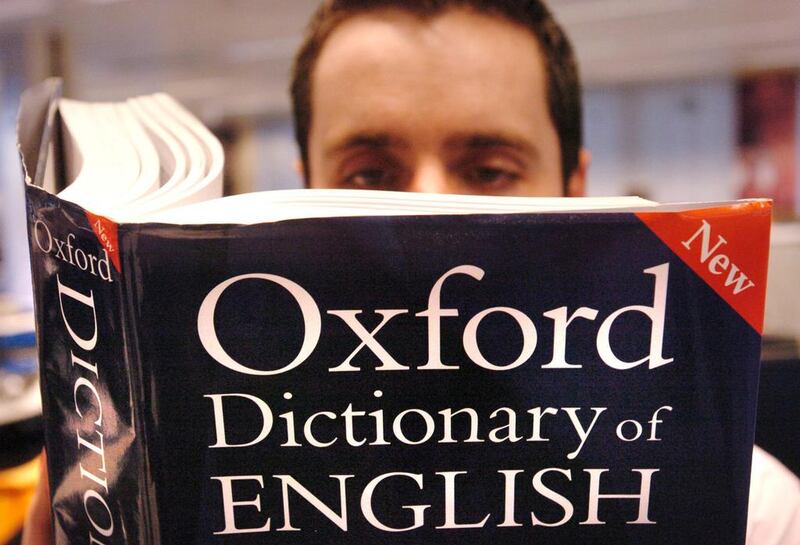DUBLIN // Oxford Dictionaries named “post-truth” as the word of 2016, putting it ahead of “Brexiteer” and “alt-right” in a field that emerged from a politically charged year.
Usage of “post-truth” — describing a situation in which opinions are shaped by emotions and not fact — surged by 2,000 per cent over the course of the year, according to the Oxford English Corpus, a project that tracks 150 million words in spoken and written English.
The official dictionary definition of “post-truth” will now read: “relating to or denoting circumstances in which objective facts are less influential in shaping public opinion than appeals to emotion and personal belief”.
“Post-truth” isn’t a new word. Its first use came in 1992, in an essay about the First Gulf War in the American magazine The Nation. “We, as a free people, have freely decided that we want to live in some post-truth world,” the essay’s author, Steve Tesich, wrote.
The word uses the prefix “post-” in much the same way as “post-racial”, which appeared frequently following Barack Obama’s election to the US presidency in 2008, when writers wondered if America had moved past racial divides.
The rise of post-truth politics began to become apparent to commentators soon after 9/11.
“Post-truthfulness exists in an ethical twilight zone,” Ralph Keyes wrote in his book The Post-Truth Era: Dishonest and Deception in Contemporary Life, published in 2004. “It allows us to dissemble without considering ourselves dishonest.”
In 2016, the word found heavy currency in the summer, during the Brexit referendum, and then during the presidential campaign of Donald Trump, said Casper Grathwohl, the president of Oxford Dictionaries.
Arron Banks, one of the most vocal campaigners for Brexit, said in an interview in July: “Facts don’t work … You’ve got to connect with people emotionally. It’s the Trump success.”
“It’s not surprising that our choice reflects a year dominated by highly-charged political and social discourse,” Mr Grathwohl said. “Fuelled by the rise of social media as a news source and a growing distrust of facts offered up by the establishment, post-truth as a concept has been finding its linguistic footing for some time.”
Other political words on the shortlist included “Brexiteer”, describing anyone who wanted the UK to leave the European Union; and “alt-right”, a term for “an ideological grouping associated with extreme conservative or reactionary viewpoints, characterised by a rejection of mainstream politics and by the use of online media to disseminate deliberately controversial content”.
Oxford Dictionaries also considered “chatbot”, computer programmes that converse with human beings; “coulrophobia”, a fear of clowns; and “woke”, borrowed from African-American slang and denoting a state of being alert to racism and other social injustices.
Last year, the word of the year was the emoji depicting a face weeping tears of joy.
The use of “post-truth” has continued even after Mr Trump’s election, Mr Grathwohl said. “Given that usage of the term hasn’t shown any signs of slowing down, I wouldn’t be surprised if ‘post-truth’ becomes one of the defining words of our time.”
ssubramanian@thenational.ae





